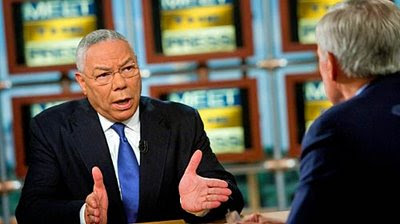I've had a bit of an inertia problem w/ DFSBP recently, but that is really nothing new. The thing to do is just to start writing, get to business, etc. It's not an easy thing to do. Or it couldn't be easier, I'm not sure which. Anyway, this week I'll be blogging on CMJ happenings
over at the Time Out New York site. Tonight, I'll be blogging on Gary Smith and the Paradise Lost films right here...

Gary Smith is a writer for Sports Illustrated, and I am reading a recent collection of his pieces for that magazine,
Going Deep: 20 Classic Sports Stories, and I love it. It's a strange thing, discussing one's enjoyment of a medium that's widely considered lowbrow. There's all this backpedaling, disclaiming involved. I have to admit I feel a little self-conscious carrying the book around on the train, emblazoned as it is with the famous SI logo.
Ben Yagoda,
writing on Smith in Slate recently, said, "Gary Smith is not only the best sportswriter in America, he's the best magazine writer in America." That's intended, it seems to me, as a contrarian statement, at least in some sense. It's like writing in "The New Yorker" that the Foo Fighters are the best rock band in America. Maybe that's not a good analogy, but gushing over a sportswriter in a publication like Slate is inherently going to come off as slumming.
Which is a shame, because reading Gary Smith, I don't know that I could come up with a strong counterargument to Yagoda's declaration. A lot of my favorite writers cover topics other than the topic I cover--two that come to mind are the Village Voice food critic Robert Sietsema and John Feinstein, a sportswriter even more populist in his appeal than Smith, not to mention the great Pauline Kael. I actually tend to feel like I'm learning more about writing when I'm *not* reading about music, even though I read a ton about music always. Really what I'm interested in reading is great human drama, great storytelling, and on that count Going Deep is an outstanding book. It's overheated at times, and a bit blustery and self-important, but Smith's writing has an immense confidence, a relentless narrative thrust.
In a way, what he does is write novelizations of true events. As Yagoda points out, he uses firsthand interview material, but he's just as likely to narrate a story from within the subject's head as from inside his own, observing the individual. He basically takes everything he knows of his subject's back story--whether that's Andre Agassi, disgraced former Notre Dame football coach George O'Leary, flash-in-the-pain MLB pitcher Mark Fidrych or Mexican-American high-school runner Javier Medina--and just tells the story as he sees it. He doesn't stretch facts so much as sell them: He's an unabashed dramatist and he has a way of making every story into something epic and universal.
And what would this commentary be without the ultimate cliche? "These stories are not really about sports." That's my statement, not Yagoda's. Okay, well you know what? They're really not. About sports, I mean. They are, but Smith's stories are really about striving, and psychology, and the desire to win, and race, and competition, and love, and fear. But his real gift, strangely, is for describing shame. I've never read more poignant stories of human lives just tanking.
One of his main fascinations with the world of sports seems to be *its* fascination with scandal. Many of these stories are about disgrace of one form or another: George O'Leary lying on his resume, high-school basketball star Richie Parker committing sexual assault, NC State coach Jim Valvano flaunting NCAA regulations. And Smith is never better than when he's documenting the swift, puritanical self-righteousness with which the media condemns these actions. "America seemed more shocked by lying from a football coach than from a politician or a businessman," he writes of the O'Leary mess. "The country still attached honor to sports."
And so much of this book is about the ludicrousness of that principle, about how silly it is that people care so much about sports. But also about the paradox that there's nothing silly about sports, that in many cases (such as for the 1957 TCU football team), college or high school sports is the pinnacle of people's lives. The athletes are gods during that time, and then they graduate and have to become regular people, but a part of them always stays in that moment where the spotlight was on them. Smith knows that somehow sports are worth paying attention to, that they're inextricably tied up with the way this country views itself and that despite the fact that it's all just a game, people care. A lot. So these are basically stories of lives on the line.
The tales intersect with crucial historical moments, such as the Little Rock high school integration, so they're not myopic by any means. You don't have to care about sports passionately to believe in them. But you do have to appreciate their mythology, the notion that they matter very, very much to those who invest their lives in them. In a way, sports and music are America's two great hopes: Those who love music revere it and those who practice it as holy, and the same goes for sports. But usually they're viewed as antithetical. When you read Gary Smith, you realize that it's really just the same struggle for meaning and self-betterment. I don't know if he's the best magazine writer in America--I only read a few magazines each month. But I can say that I'm enjoying this book immensely and that I'm trying to learn from it how to be a better storyteller.
/////

That went a little long. I went deep, as it were. Anyway, I wanted to mention the
Paradise Lost documentaries (there are two of them), which Laal and I watched in quick succession over the weekend. I don't know quite what these have to do with Gary Smith other than that they tell a true story in a fascinating way, but they're immensely intriguing.
These films were made by Joe Berlinger and Bruce Sinofsky, the dudes responsible for the mighty Metallica doc Some Kind of Monster, which I love to death. They tell the story of three teenagers from West Memphis, Arkansas, who were convicted in the early '90s for the gruesome murders of three second graders. The accused were misfit kids, into heavy metal and the occult, and during the trial, these superficial facets of their personalities were pretty much the only hard evidence that was used against them. They were branded as satanists and freaks, and thus the trial basically took on the cast of a modern-day witch hunt. There were other compelling leads, but they were never pursued; the town and the jury just seemed to make up its mind and that was that.
All of the above is documented in the first film. The second film, subtitled Revelations, is sort of a postscript to the first, and it's odd b/c it documents the process wherein the making of the first film came to influence the actual events being documented. The first film brought notoriety to the case and many activist groups sprung up to try to prove the innocence of the three teens. Those efforts have snowballed and at this point the West Memphis Three are the fashionable cause celebre among folks like Eddie Vedder and other ostentatiously political pop-cultural icons.
It's to the filmmakers' credit that though they seem to generally support the notion that the men were wrongly convicted, they never come out and beat you over the head with that opinion. They make sure that you understand a) the heinousness of the crimes (I've never seen such graphic crime-scene footage in a doc before), b) the devastating effect they had on the families, and c) that there are a select few compelling pieces of evidence in the prosecution's testimony, namely the fact that one of the teens, albeit one who has been labeled "borderline retarded," actually confessed to witnessing and partaking in the crimes, though this was after 12 hours of brutal and coercive interrogation.
Much of the second film deals with Mark Byers, the stepfather of one of the boys who went on to become a prime suspect. A tall, fiery and thoroughly creepy man, he puts on these odd pageants of hate for the filmmakers, creating mock graves for the three teens and setting them ablaze and screaming vengeful damnations into the camera. He's a really disturbed man and it's very easy to believe that he--an admittedly abusive father--could have been driven to commit these crimes. But again, you're never sure.
I admire what the West Memphis 3 advocacy groups have done on these men's behalf, though I find the bandwagon-ish approach of that whole campaign to be a little distasteful. There doesn't seem to be enough evidence to determine their guilt, but nor do you (or at least I didn't) ever feel totally comfortable proclaiming them as straightforward victims of chance in the whole matter.
Regardless, these films are absolutely fascinating documents of the way violent crime can destroy entire communities, and not just the lives that are directly affected by them. Like Gary Smith, Berlinger and Sinofsky know how to tell a great story.
/////

Speaking of documentaries, I highly recommend the Cannibal Corpse DVD set Centuries of Torment (great cover, no?), out recently on
Metal Blade. I first heard of this one from Ben Ratliff's charming and utterly unexpected
review in the Times a few weeks back, and I agree wholeheartedly with his assessment that it's as much a history of death metal as it is of the Corpse. There's great info on Morrisound Studios, the pre-internet metal underground, the Tampa scene, Metal Blade records and many other aspects of the music's early history that have never been comprehensively explored on film. It's way detailed and nonfans might get a little restless, but the Cannibal guys are--contrary to what you might think--very good natured and pleasant. They love what they do and it's a joy to watch them retrace their humble beginnings.
I listened to my fair share of Cannibal back in the day, though I always felt that they were sort of second rate, paling in comparison to the likes of Morbid Angel. But seeing this documentary makes me reconsider: Sure they're workmanlike in a way, but they've also stuck to their guns in a way that few others have. They haven't really messed with the formula too much at all, and their latest record, Kill, is probably their heaviest and most uncompromising yet. I've also revisited "The Bleeding" recently and am realizing that it's a remarkable and especially memorable disc, with some of the greatest riffs ever to appear on a death metal record. Check out an MP3 my favorite track,
Return to Flesh, which would make Tony Iommi way proud.
/////

Lastly, I feel bad for not mentioning last month's Shudder to Think reunion show at Webster Hall. Had a blast at this one. It was unabashedly a Big Rock show, with dazzling light displays and the like, but that was very appropriate in that it celebrated the '90s watershed when art and commerce were comfortably intertwined for a few blissful years. I'm certainly not the first one to
point this out, but Shudder to Think will forever be a leading candidate for Weirdest Band Ever to Appear on MTV. Anyway, they were great live. Craig Wedren is a powerhouse of vocal dynamism and general exuberance and positive vibes and Nathan Larson has old-school rock-star swagger down cold. It's amazing how many strong songs they had and how weird they still sound and how insanely catchy they still are. Pony Express Record is essential and is their obvious magnum opus, though a few tracks from Get Your Goat and 50,000 B.C. are must-hears as well, including set opener
Red House (video on YouTube) from the latter and
Shake Your Halo Down (MP3) from the former. (Shout-out and congrats too to bassist Jesse Krakow for getting the gig and nailing all the songs. It was the enthusiasm of him and his former Time of Orchids bandmates and buds that got me into Shudder in the first place, so I know how much this experience meant to him. Bravo!)
.(3.5x1.46).5472.jpg)





